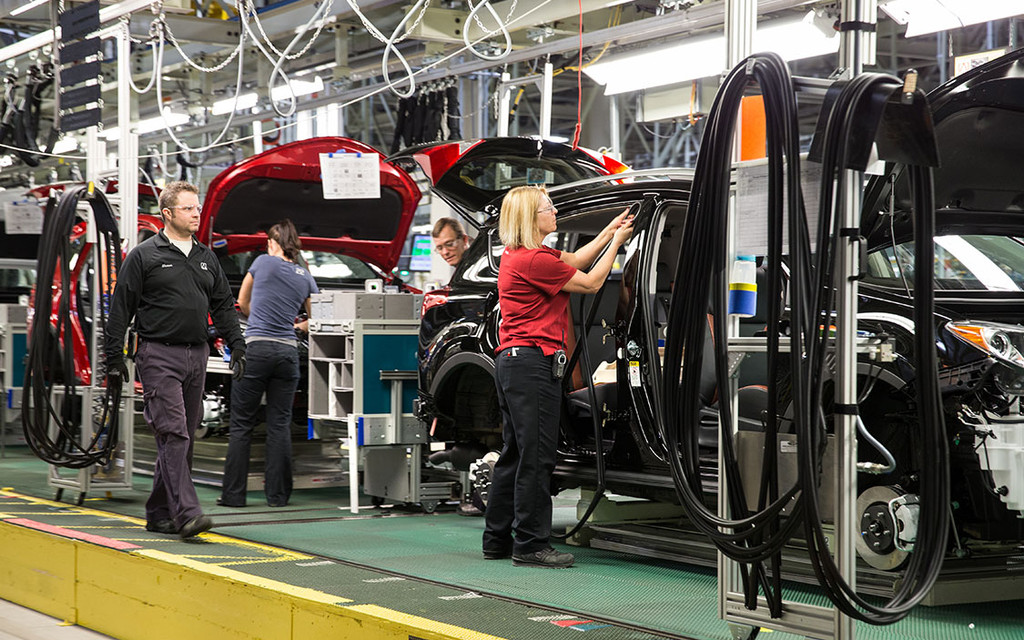Canada's auto industry coming to 'crest of a hill in 2016'

A Canadian think-tank projects no growth in Canadian auto production over the next five years despite the slumping loonie pushing industry profits up an estimated 79 per cent to nearly $2.5 billion in 2015.
In its automotive industry outlook, the Conference Board of Canada said the Canadian auto sector's pre-tax profit margin reached four per cent in 2015, the highest on record since 2000, though the "the economic headwinds" bearing down on the country are enough to cut profits to $2 billion this year.
The Conference Board also projects a continued steady decline in profits through 2020.
"Despite the strong short-term results, the Canadian auto assembly industry is struggling to grow," the Conference Board's Michael Burt said in a statement. "Over the next five years, no growth in production is expected in Canada."
Burt continued by saying that the pending Trans-Pacific Partnership (TPP), the massive trade agreement between Canada and 11 other nations, is expected to "heighten competition" for auto assembly and parts-making plants in Canada.
"The agreement calls for the elimination of tariffs on imported Japanese vehicles within five years of ratification, leading to enhanced competition in the saturated Canadian market," he said. "Although Canadian producers have not traditionally exported a lot to Asian countries, the TPP will also increase their market access to member countries, creating new opportunities."
The United States, which is also part of the TPP, does not have to fully eliminate tariffs on Japanese vehicles for 25 years.
The lone bright spot in the Conference Board report concerns the retooling of Canadian assembly plants for light truck and crossover production, which produce higher profits per vehicle.
"As a whole, however, Canada is continuing to lose out on auto sector investment to the southern U.S. and Mexico," according to the think-tank.
The grim outlook for the Canadian auto industry is nothing new, with experts projecting a continued decline for some years now.








